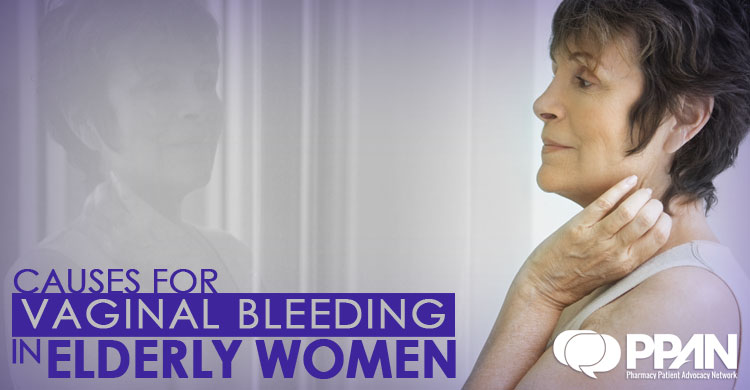Causes for Vaginal Bleeding in Elderly Women
Aging is an unavoidable part of life, and as we grow older our bodies begin to change in a wide variety of ways. Some of them can be alarming, and understanding more about them is important. As women age, problems with their reproductive systems can become common and become stressful. Vaginal bleeding may or may not be a sign of a more serious condition, and for elderly women it is something that is important to pay attention to.
There are numerous potential causes for vaginal bleeding in elderly women. Some of them are the same potential causes of the symptom in younger women, while others are more directly related to the elderly and their bodies. Only a doctor will be able to make a definitive diagnosis, but here are some of the potential causes of this problem. Understanding them can help you know what to expect and what to talk to your doctor about.
Potential Causes of Vaginal Bleeding
Here are some of the potential causes of vaginal bleeding in the elderly.
- Uterine Cancer – Uterine cancer is the most pressing issue that could be causing vaginal bleeding in the elderly. Vaginal bleeding is actually the number one symptom of this condition, and women who are obese, are on estrogen therapy, or went through menopause after the age of 55 are more likely to develop this type of cancer. Early detection can help fight the problem, and a wide range of different treatments might be used. Uterine cancer is the main reason that you need to have vaginal bleeding looked at by a medical professional quickly.
- Urinary Tract Infections – Urinary tract infections can be very painful, reduce one’s ability to go to the bathroom properly, and in severe cases can lead to blood in the urine. Additionally, the infection can lead to spotting or dribbling of urine, which might occur when the woman doesn’t realize it. If that urine is bloody, it can seem like bloody discharge. Urinary tract infections are treatable with antibiotics, and as a result a doctor can usually help with this problem quickly.
- Tumors – The development of tumors and cysts becomes more common as women age, and even if these cysts and polyps are benign they can certainly trigger a wide range of issues including vaginal bleeding. Doctors will detect these growths and run biopsies to determine whether or not they are malignant and what steps to take next. Removal of the growth is usually recommended, though women of very advanced age might be advised to avoid the surgery – especially if the growths are benign.
- Kidney Stones – Kidney stones can cause vaginal bleeding in anyone of any age, but as women grow older the risks associated with them increase dramatically. This problem is often very noticeable since it is accompanied by tremendous levels of pain, unlike some of the other causes of vaginal bleeding on this list.
- Hormone Replacement Therapy – A side effect of hormone replacement therapy is that it could trigger various vaginal irritations and also cause vaginal bleeding. Hormone imbalances can lead to issues that trigger bleeding, and the process of bringing those hormones back to where they should be can as well. Doctors will determine whether or not a different kind of hormone replacement might be used and whether or not the bleeding is sufficient to warrant the elimination of this type of therapy, or if it is a minor enough side effect to continue with the therapies.
- Blood Thinners – Older women might have to take a variety of medications, and blood thinners are among them. Blood thinning medication could make it much more likely for vaginal bleeding to occur since the blood will clot less and since it can more easily escape through mucus membranes and other parts of the body – including the vagina. Other medications may also be behind the problem, and reviewing the current medications taken is the first step many doctors will take.
- Inflammation – Various types of infections can lead to inflammation within the vagina, and even minor infections could trigger this response. Inflammation is often accompanied with itching or with pain, and can be caused by everything from fungal infections to yeast infections. As a result it’s important to visit a medical professional to determine the root cause of the inflammation and how best to go about treating it.
- Thinning – After menopause occurs, the levels of estrogen in a woman’s body often drop significantly. When this occurs, a lot of different symptoms might happen but one of the main ones is thinning and weakening of the vaginal lining. This in turn can lead to bleeding that may be slight or could be quite heavy, and a doctor will help you determine the best course of action to take with it.
Determining the Cause of Bleeding
As mentioned above, only a doctor will be able to make a full, accurate diagnosis of what the issue is. The nature of this problem generally means that instead of leaping to an immediate conclusions, medical professionals will eliminate each potential cause until they reach the one that they can’t eliminate. Then, they’ll run additional tests to confirm this diagnosis. They will use a wide range of tests to do so, including:
- Biopsy
- Pap smear
- Ultrasound
- Blood tests
- And more
In the end, the important thing to remember is that you need to have the issue looked at by a medical professional as soon as you possibly can. But don’t let yourself grow too stressed over this issue. There is a chance that it could be quite serious, but also a chance that it is a relatively minor problem that can be cleared up with minimal treatment.
Obviously, your health is important and as a result it’s vital that you treat any potential health problem with the respect it deserves. What may seem like minor spotting could be caused by a much more serious issue, and as a result it’s important that you take the time to set up a doctor’s appointment as soon as you notice that bleeding is an issue. It could very well save your life.





